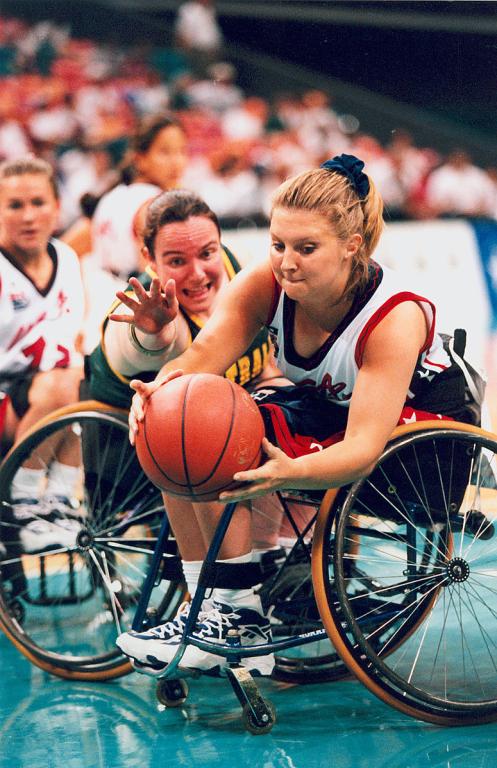When my daughter played in weekend-long sports tournaments, we always went to Sunday Mass, and so did the other Catholics on her various teams.
I live in the Bible Belt, though, and I knew that a number of her teammates and coaches were believing Evangelical Christians, so it surprised me that they never attempted to make it to church when they were out of town.
I would not have been surprised if some or all had chosen, instead, to host a short private prayer and worship service of some nature — but for these committed Christians to have no Sunday church at all was not on my mental bingo card.
But there it was, season after season, and it is understandable that a pastor of such absentee souls would like to do something about that.
Pastor James Griffin from Crosspoint Community Church has generated significant discussion with his promotion of a Thursday evening service, targeted towards members who can’t attend on Sundays due to any number of possible schedule conflicts.
"We can give people their weekends back"
Crosspoint City Church pastor James Griffin reveals they've added a Thursday evening church service so that families who travel on the weekend for kids sports or want to go camping can still attend more than twice a month.#Lordsday pic.twitter.com/O9ePdAYKnv
— Protestia (@Protestia) August 19, 2024
No one seems to doubt that first responders and healthcare workers have to work on Sundays. I have not seen much discussion of Sunday work generally, either. What seems to be gathering the most attention is the question of travel sports.
For example, Anthony Bradley asked:
Question: how did parents succumb so easily to the false belief that travel sports are actually beneficial—allowing sports to determine the rhythm of the family? Why don’t parents just say, “we’re not doing that?” What happened?
Question: how did parents succumb so easily to the false belief that travel sports are actually beneficial—allowing sports to determine the rhythm of the family? Why don’t parents just say, “we’re not doing that?” What happened? https://t.co/R7sKePH6Ak
— Anthony Bradley (@drantbradley) August 24, 2024
I’d like to answer this one.
Why play travel sports at all?
There were quite a lot of negative-type answers to Bradley’s question:
- Parents are living vicariously through their child.
- Family is convinced their child will pay for college through sport scholarships.
- Weekend sports fill a void in the soul, giving purpose to an otherwise empty interior life.
- Sports are a source of community and friendship in an increasingly lonely age.
A few parents, though, gave the same answer that we had: If my child wanted to play her sport at a competitive level (that is to say: at her ability level), weekend travel-teams were the only option.
In our case, we had a younger daughter who played the same sport, but only recreationally. Fortunately she attended a small school where there was room on the roster for players at her ability level. In contrast, quite a few dedicated, hard-working athletes attending the enormous nearby public schools could not get onto their school team even if they trained year-round.
We certainly could have told our elder daughter that she simply was not going to get to train and play her sport — we nearly did so, in fact, but her first few club teams offered her scholarships that brought her costs into our budget. I recall at least one very talented teammate who nearly always traveled with another family, because her own family could not afford the expense of a hotel and a weekend away.
All that to say: There are quite a few of us who wish that there were local leagues where our children could practice their chosen sport at a suitable level given our child’s ability and interest, but it’s not on offer.
In our case, it wasn’t something we were in a position to change, either, no matter how much I might daydream of doing so.
Play for this year.
The one dynamic I found most toxic at the upper end of travel play were the families who were pegging everything on their child’s sports career. By “upper end” here I mean teams where the child is playing at the most competitive level within reach of the athlete’s ability and family resources.
These parents were somehow convinced that if only they yelled, and swore, and badgered, and nagged enough, the parents’ terrible budgeting decisions would all be made good thanks to an athletic scholarship down the road. These parents had not done a whole lot of math.*
When we were considering whether to let my daughter play on a travel team, I made one thing clear: We are deciding all this based on what you will gain from this experience this year. If you never touch a ball again at the end of this season, we still will have been glad you went out for this team.
The game is not the most important thing.
I don’t know if we prioritized athletics correctly in the life of our daughter and our family. That’s a question I don’t think I could assess objectively, and I’m not sure I have the knowledge necessary to do so.
I know that God appears to have cooperated with our good intentions, and certain very good things (for example, that son-in-law I mentioned on this blog earlier this summer) came into our lives directly due to the fact of my girl following her athletic dreams as far as they might take her.
Personally I did struggle, and still do, with the fact that weekend sports means making other people work on Sundays — people who can’t go to church because they are busy making my leisure plans happen.
But I look around me and notice that the Church is not speaking out against watching Sunday Night Football, nor against the evils of athletes whose Olympic dreams came at the price of Sunday practices and competitions. That isn’t the most rigorous conscience-formation that ever was, but also I can’t say that these things are prohibited, when clearly they are not.
But yes, we went to Sunday Mass every weekend. Sometimes it was a Saturday vigil, sometimes it was the early-bird, sometimes it was the last-chance Sunday night, sometimes it was a mid-afternoon Spanish Mass.
The first year it was stressful, because we didn’t know what we were getting into, but thank God it always worked out that we could find something, somewhere, that worked with the play schedule. After that, we knew to speak to the coach before signing with the team and clarify that Sunday Mass was not a negotiable.
We made it clear that we would attend whichever available Mass was least inconvenient to the team, and that we understood it might mean having to be benched if our child missed a game due to the conflict, but was this okay? It was always okay, and also we never had to miss a game, because the silver lining of the priest shortage is that many parishes offer lots of odd-hours services.
I was glad for this chance for my child to see that although I was willing to put a lot of time and expense into helping her do something that was important to her, God was still more important than anything else we might have on her schedule.
I was also glad for the opportunity to teach her and show her: Yes, you can go to church when you’re out of town. Just look up the various services, pick one, walk in and find a seat. It’s not difficult, and you get to see some interesting things.
Related: Are Sports Sabotaging or Strengthening Your Family’s Faith?
Photo: Australia vs. USA, 1996, women’s basketball, courtesy of the Australian Paralympic Committee.
*Yes, I know that sometimes a student-athlete really does end out making more money on athletic scholarships than the family spent on sporting to get there, but that’s a rare situation. Making sports more widely available is a good goal, because sports can be good for us, but your far better bet for paying for college is a combination of good grades, a weekend and/or summer job, and putting that cash you’d spend on a travel team into a 529 plan instead.















